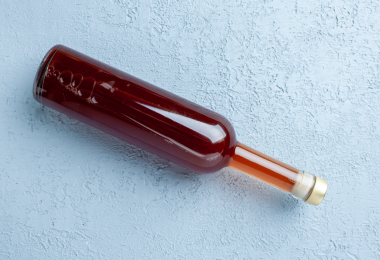Many people are bitten by mosquitoes every year. Most of the time, it is just an irritation. You can find out if you have been bitten by a mosquito by looking for these signs: A red bump on your skin, itching or swelling around the area, and a small hole where the bite was.
Your skin is your largest organ, and it’s also the one that suffers most from an attack by a mosquito. Bites happen often during the summer months, and they can leave your skin red, itchy, and sometimes even inflamed. If you think you’ve been bitten by a mosquito, here are some tips for dealing with the bite to minimize discomfort and help you get back to enjoying your day.
How Do You Know If a Mosquito is Biting You?
To know if a mosquito is biting you, look for the telltale signs. There are many different types of mosquitoes in the world, and some of them will leave red welts when they bite you. Others won’t leave any visible signs at all. However, there are ways to tell if a mosquito is biting you without seeing it happen. You can look for itching and irritation where the mosquito has bitten you because these insects tend to bite in areas that aren’t covered by clothing.
You can tell if a mosquito is biting you by feeling for it. The pesky bugs are generally found around areas of still water or damp soil, and they often bite ankles and other uncovered areas of skin. If you notice a bite, try to find the insect and squish it before it has a chance to inject you with its saliva. Also keep in mind that while some mosquitoes carry disease, most don’t; instead, they deliver an uncomfortable itch.
When it comes to avoiding mosquito bites, there are a few things you can do. First, you can keep your skin covered. If you’re going to be outside at night when mosquitoes are most active, wear long sleeves and pants to prevent them from biting you. You can also use a repellent that will help keep the bugs away.
What Does a Mosquito Bite Look Like?
Finding out what a mosquito bite looks like can be important if you are trying to diagnose your own condition. Mosquitoes are very small insects, which means they can bite without you even noticing it. Many people don’t even realize that they have been bitten until they see the red, swollen area on their skin. If you suspect that you have been bitten by a mosquito, take a look at the bite to make sure it matches up with what you should expect.
For those who have never experienced a mosquito bite, the appearance of one can be quite alarming. The insect’s saliva is filled with proteins that our bodies perceive as foreign and harmful, and it triggers an immune response in the form of swelling and itching. If you’ve never had a mosquito bite before, you may not know what to expect when one occurs.
How To Treat Mosquito Bites On Legs?
How to Treat Mosquito Bites on Legs Mosquito bites can be a serious annoyance. They can itch and burn for days, and in some cases, they can cause infections or other illnesses. Luckily, there are many ways to treat mosquito bites. These treatments can help relieve the pain and itching of mosquito bites, reduce the risk of infection, and make your skin feel better in general.
Mosquito bites can be a nuisance, but if you know how to treat them, they won’t be a big deal. The first thing you should do is remove the mosquito from your skin as soon as possible. Mosquitoes carry diseases and will bite again after they have been removed from your skin. Then, you should clean the area thoroughly with soap and water to prevent infection.
While mosquito bites can be irritating, they are not harmful. Bites from mosquitoes usually cause an itchy red bump on the skin that is swollen and filled with fluid. These bites typically fade after a few days, but a more serious allergic reaction can cause them to swell and become painful. The best way to treat a mosquito bite is to take an antihistamine or corticosteroid cream if necessary and apply an ice pack or cold compress to reduce swelling.
When To Worry About a Mosquito Bite?
Mosquitoes are an almost inevitable part of summer. They’re also the bane of many people’s existence since these pesky insects can bite and spread diseases like the West Nile virus. Mosquito bites don’t always need to be cause for concern, but there are some circumstances that warrant special attention. If you find yourself scratching an itch or seeing unusual marks on your skin after being bitten by a mosquito, you may want to consider visiting a doctor.
Trying to figure out when to worry about a mosquito bite can be tricky. It’s not uncommon for mosquitos to leave behind red bumps that itch, but unless you’re experiencing other symptoms like fever or nausea, it’s unlikely that you’ll need to worry about diseases like West Nile virus or malaria. It’s best to treat mosquito bites with anti-itch cream and over-the-counter pain medication like ibuprofen. If your symptoms worsen, however, you should talk to your doctor.
Trying to decide when you should worry about a mosquito bite is hard. Mosquitoes are annoying, but they rarely transmit disease. The most common mosquito-borne illness in the United States is Zika, which has no symptoms in 80% of cases and mild symptoms in the remaining 20%. That said, it’s still important to know when to worry about a mosquito bite because there are some rare diseases that only mosquitoes can transmit.







